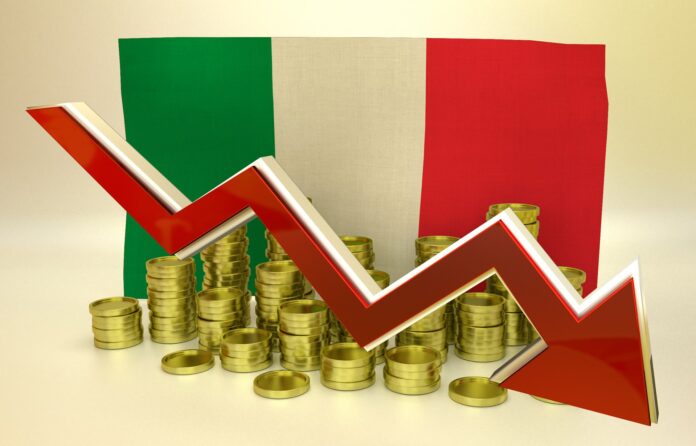B. Adedipe Associates Ltd. (BAA Consult) has reviewed downward its growth forecast for the Nigerian economy in 2022 to 3.27 per cent from its earlier projection of 3.74 per cent announced in January.
Dr ‘Biodun Adedipe, founder and Chief Consultant BAA Consult, announced the new projection at the roundtable session on the Mid-Year review of Economic Outlook for 2022.
The event was organised by the Chartered Institute of Bankers of Nigeria (CIBN) in collaboration with BAA Consult, on Tuesday in Lagos.
“So for us in BAA Consult, we have dampen our expectation when we started the outlook at the beginning of the year.
“We projected between 3.74 per cent growth, at that time, both the Internal Monetary Fund (IMF) and the World Bank had 1.5 per cent by April. IMF increases its own from 1.5 to 3.4 per cent.
“But as at today based on the first half year, what we see as the likely outcome of our GDP growth this year is 3.27 per cent; no longer 3.74 per cent because of what has happened (insecurity).
“So, we must therefore, take concrete actions with respect to insecurity which is the measure hobbler of economic growth as of Nigeria today.
“And of course, our policies with export promotion, fiscal discipline must be structurally addressed, the issue of fuel subsidy and the obvious corruption in that as well,’’ Adedipe said.
He added that the volume of refined petroleum Nigeria consume and the amount paid on subsidy, if compared together, would tell that something was missing somewhere.
He said, “Of course I’m not in government, so I don’t have access to all the data. But for us as analysts, we interpret what we see and within the limit of what we see. It is clear that talking of fuel subsidy, the trillions of Naira in Nigeria today, there must be some fraud somewhere .
“But we must develop the courage to address it; if we do that, then we’ve started the process of getting the economy in the direction it should go’’.
He said that tremendous energy in Nigerians and our corporate entities would make the economy work, `only if we get the right signals from the policy authority’.
Dr Michael Adebiyi, Director, Research Department, Central Bank of Nigeria (CBN) said, “against the backdrop of the prevailing headwinds to the positive outlook of the economy, the future looks optimistic.
According to Adebiyi, this is based on the various efforts of the CBN at repositioning the financial and real sectors of the economy for sustainable development.
“However, more still needs to be done, particularly in the agricultural sector and Information Communication Technology,’’ he said.
Adebiyi, represented by Mr Adeniyi Adenuga, Assistant Director, CBN, therefore called on the fiscal authorities to support the intervention efforts of the apex bank.
This, he added, can be achiebed by providing competitive tax incentives for the importation of large-scale and high-impact technology as well as innovation.
The director noted that this would help to enhance agricultural yield and efficiency in the entire value chain.
He also said that efforts at addressing the persisting insecurity challenges, should be accelerated to help address food-supply disruptions, thereby mitigating the rising food inflationary pressures in the short-term.
Adebiyi expressed optimism that the apex bank would sustain its current credit support facilities to the real sector to boost agricultural output, for improved value chain and export value.
This, he said, would restore relative stability in the foreign exchange market.
He urged banks to sustain the 100-for-100 Policy for Production and Productivity (PPP) and the Naira-4-dollar scheme and enhance the Foreign Exchange position in the Investors and Exporters window.
He suggested that could be attained by encouraging the participation of top 100 non-oil exporters in the RT200 FX programme.
According to him, these would help in stabilising the exchange rate and boost reserves accretion in the short-to-medium term.
He called on stakeholders to come up with useful recommendations that would improve and boost the growth of the Nigerian economy and policy options that could be adopted to tame inflation in the economy.
Earlier, Dr Ken Opara, President of CIBN, said that the event, a brainchild of the CIBN Research Committee, was designed to evaluate the performance of the Nigerian economy in the prior half of the year, while providing an outlook for the second half of the year.
“More specifically, the event would assess the trends of macroeconomic indicators in the first six months of 2022 as well as the performance of key sectors of the economy.
“The maiden edition was successfully held on August 13, 2021 with participants across the globe.
“This second edition of the Mid-Year Economic Review and Outlook is intended to be a follow up on the National Economic Outlook event usually held at the beginning of each year whereby actual performance/trends of economic indicators are compared with predictions asserted at the beginning of the year.
“Ultimately, it offers yet another prospect to deliver value to our stakeholders while they navigate the rudiments of a relatively demanding year,’’ Opara said.




